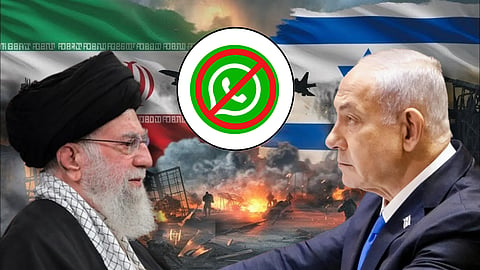Iran bans citizens from using WhatsApp as Iran-Israel tensions rise
As the Israel-Iran conflict escalates to unprecedented levels, Iranian authorities have ordered citizens to delete WhatsApp and other social media applications, citing national security threats and fears of foreign surveillance. The war between the two Middle Eastern rivals has intensified in recent days, with both countries launching fierce attacks on each other. A series of heavy bombings has left over 200 people dead and caused extensive damage to hundreds of buildings. The Iranian capital Tehran has been a major target, with multiple Israeli strikes reported across key areas, including a major explosion near the Nobonyad district in eastern Tehran.
Amid this volatile backdrop, Iranian officials have expressed concerns that apps like WhatsApp may be exploited by Israeli intelligence to access sensitive data. The government has warned that private information could be hacked through the platform, adding to the already high levels of anxiety among the population. WhatsApp, which is one of the most widely used communication apps in Iran, has responded by reaffirming its commitment to user privacy. The company claims its end-to-end encryption ensures that neither message content nor private user data can be accessed or shared—even with governments.
Despite this assurance, Iranian authorities continue to target WhatsApp and similar apps, citing the heightened threat environment. This move reflects growing fears in Iran that digital platforms could serve as tools for espionage, misinformation, or psychological warfare during the ongoing conflict.
The atmosphere in Tehran remains tense, with citizens living in fear of further airstrikes. Reports of explosions near strategic locations have fueled widespread panic, as the conflict shows no signs of abating. As the war between Israel and Iran pushes the region closer to a full-scale crisis, the impact is now spilling into cyberspace, signaling a new front in modern warfare—digital communication and information control.

